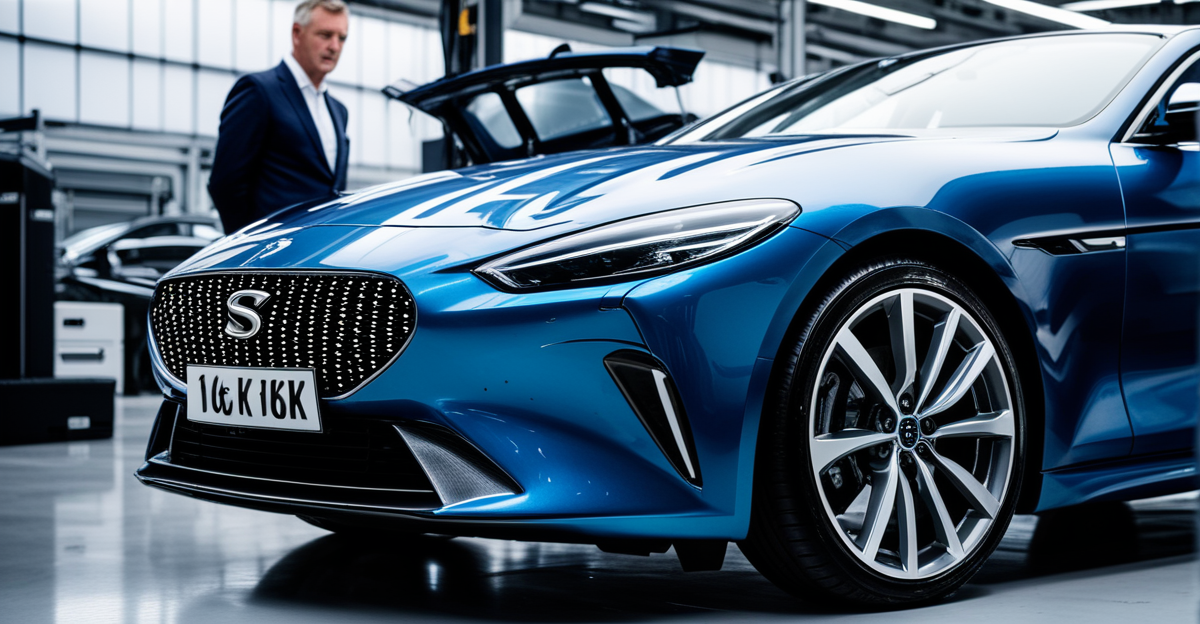Emerging Technologies Shaping the UK Automotive Sector
Emerging UK automotive technology is rapidly transforming the landscape, with electric vehicles (EVs) at the forefront. EV adoption rates have surged, supported by expanding charging infrastructure across the UK, which addresses range anxiety and convenience concerns. This infrastructure growth is crucial to meet government targets and consumer demand for cleaner transport.
Artificial intelligence in cars is advancing driver assistance and safety features. AI-powered systems enable real-time data analysis for predictive maintenance, traffic optimisation, and enhanced vehicle-to-vehicle communication. These connected vehicle systems play a critical role in improving road safety and efficiency.
Also read : How Can Automation Transform the Future of UK’s Automotive Industry?
Autonomous vehicles are becoming increasingly viable, shaped by AI and sensor integration. UK automotive technology firms focus on developing autonomous cars capable of smart decision-making in complex environments. Such smart mobility solutions aim to reduce accidents and urban congestion while increasing accessibility.
Together, these technologies not only transform vehicle capabilities but also redefine mobility experiences. The integration of electric, autonomous, and AI-driven features shows strong potential to propel the UK automotive sector into a new era of innovation and sustainability.
In the same genre : How Can Automation Transform the Future of UK’s Automotive Industry?
Government Policy and Regulatory Drivers
Government policy plays a pivotal role in shaping the UK automotive technology landscape. Decarbonisation targets and stringent emissions regulations compel automakers to accelerate the shift towards electric vehicles (EVs). The UK government’s commitment to phasing out petrol and diesel cars by 2030 incentivises manufacturers to prioritise cleaner technologies and invest heavily in EV development and infrastructure.
Post-Brexit, the sector faces complex challenges. Altered trade agreements influence supply chains and parts sourcing, impacting costs and delivery timelines. However, targeted UK government automotive policies aim to mitigate these effects through negotiation of favourable trade terms and targeted funding to bolster domestic production capabilities.
Government incentives profoundly affect EV adoption. Subsidies, tax benefits, and grants lower consumer costs, making electric vehicles more accessible and attractive. Moreover, increased public funding for research and development stimulates innovation in artificial intelligence in cars and autonomous vehicles, positioning the UK as a competitive player in emerging automotive technologies.
Government frameworks not only drive decarbonisation but also nurture an ecosystem where advanced UK automotive technology can thrive, balancing regulatory pressures with incentives designed to support industry growth and consumer uptake.
Emerging Technologies Shaping the UK Automotive Sector
The rapid adoption of electric vehicles (EVs) in the UK has been driven by advancements in UK automotive technology and the expansion of charging infrastructure. This infrastructure is critical in addressing range anxiety, a common barrier to EV uptake. Reliable access to fast and widespread charging stations ensures consumer confidence in electric mobility.
Meanwhile, artificial intelligence in cars is revolutionising vehicle operation. AI enables cars to analyse driving conditions continuously, providing features such as predictive maintenance alerts and adaptive driver assistance systems. This integration enhances safety, efficiency, and overall driving experience. Moreover, connected vehicle systems benefit from AI by sharing data that optimises traffic flow and reduces congestion.
Autonomous vehicles represent a significant leap, combining AI with sensor technology to navigate complex environments without human input. The UK automotive sector is actively developing smart mobility solutions aiming not only to reduce accidents but also to improve accessibility for urban populations. These autonomous systems rely heavily on AI for decision-making, highlighting the interdependence of these emerging technologies within the evolving UK automotive landscape.
Emerging Technologies Shaping the UK Automotive Sector
The UK automotive technology landscape increasingly hinges on integration of electric vehicles with cutting-edge digital systems. Rising EV adoption demands robust charging infrastructure, yet complementary advances in artificial intelligence in cars significantly enhance vehicle functionality beyond propulsion. AI allows real-time analysis of sensor data for predictive maintenance and adaptive driver aids, which improves safety and performance.
On the frontier of innovation, autonomous vehicles leverage AI algorithms and sophisticated sensors to navigate complex environments without human input. These systems incorporate data from connected vehicle networks, making urban transportation more efficient and potentially reducing accidents. The synergy between AI-driven automation and electric drivetrains exemplifies the sector’s move toward sustainable, smart mobility.
Further, connected vehicle systems utilize AI to optimize traffic flows, decreasing congestion and emissions. Such networks promote dynamic route planning, benefiting EV efficiency. Continued UK automotive technology investments in these areas are essential to maintaining leadership in smart, green vehicle solutions. By combining electric propulsion with AI and autonomy, the UK is shaping a future where vehicles are not only cleaner but smarter and more responsive to real-world conditions.
Emerging Technologies Shaping the UK Automotive Sector
Electric vehicles (EVs) continue to lead innovation within UK automotive technology, with adoption rates climbing rapidly thanks to enhanced charging infrastructure that mitigates range anxiety. This infrastructure is not only wider but increasingly supports fast and ultra-rapid charging, making EV use more practical for urban and rural drivers alike.
Artificial intelligence in cars elevates vehicle intelligence through features such as adaptive cruise control, lane-keeping assistance, and real-time diagnostic systems. AI algorithms process vast sensor data, enabling vehicles to respond dynamically to road conditions and driver behaviours. Furthermore, connected vehicle systems leverage AI to coordinate traffic flow and energy consumption, directly impacting efficiency.
The rise of autonomous vehicles reflects the integration of AI with advanced sensors and machine learning, enabling cars to navigate complex environments without human intervention. These smart mobility solutions are particularly promising for congested urban areas, where autonomous tech can reduce accidents and enhance transport accessibility. The UK automotive sector’s focused investment in such technologies underscores a commitment to shaping a future with safer, cleaner, and more intelligent transportation modes.
Emerging Technologies Shaping the UK Automotive Sector
The UK automotive technology sector is seeing remarkable growth in electric vehicles (EVs), driven by rapidly expanding infrastructure that boosts range confidence. This includes numerous fast-charging stations strategically placed to support urban and rural users, directly addressing a primary barrier to EV adoption.
At the same time, artificial intelligence in cars is transforming vehicular functionality. AI-enabled systems process real-time data from sensors to offer predictive maintenance alerts and adaptive driver assistance, which significantly improve safety and efficiency. These AI applications also underpin connectivity solutions, allowing vehicles to communicate and optimize traffic flow dynamically.
Autonomous vehicles are becoming increasingly integrated with these technologies. Combining AI with advanced sensor arrays, autonomous cars can navigate complex road scenarios without human input. In the UK, such smart mobility solutions aim to reduce collisions and enhance accessibility, especially in congested cities. The interplay between AI, EVs, and autonomous capabilities exemplifies the sector’s commitment to smarter, cleaner, and safer transport solutions, positioning the UK at the forefront of automotive innovation.



